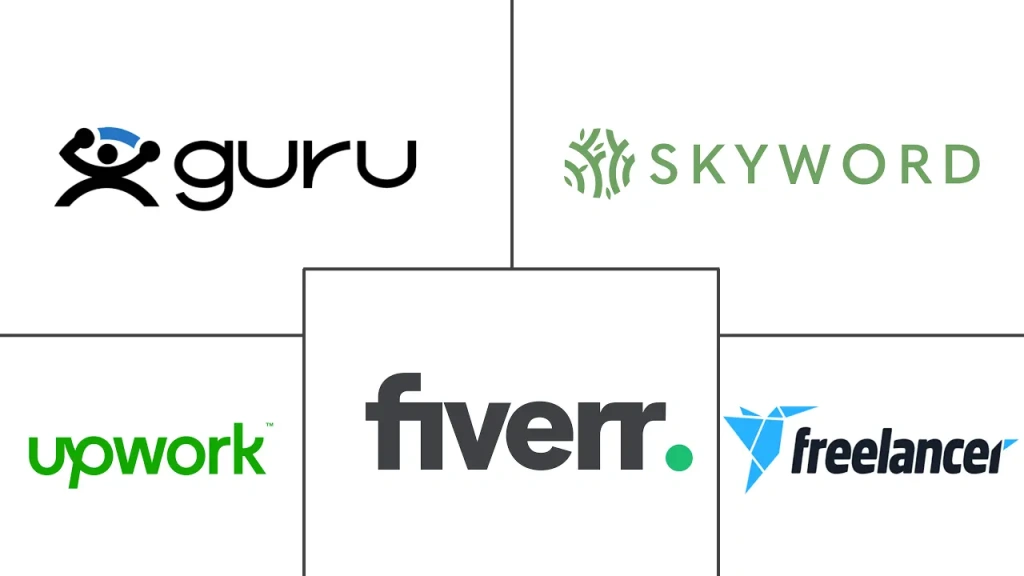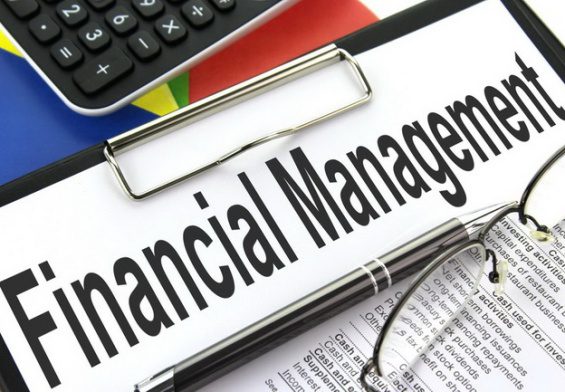
Table of Contents
Top Budgeting Techniques for Freelancers
Top Budgeting Techniques for Freelancers: Freelancing has become one of the fastest-growing career choices worldwide. The flexibility of working on your own terms, choosing projects that inspire you, and controlling your schedule makes freelancing incredibly attractive. But while freelancing has many perks, it also comes with unique financial challenges. Unlike traditional employment, freelancers often don’t have a fixed paycheck, employer-provided benefits, or structured retirement plans. This irregularity makes budgeting not just useful but essential.
In this article, we’ll explore the top budgeting techniques for freelancers that can help you manage your money effectively, reduce financial stress, and build a secure financial future.

Why Budgeting is Crucial for Freelancers
Freelancers face a financial landscape that is far different from salaried employees. One month might bring a flood of projects, while the next could be unusually quiet. This unpredictability creates income volatility, making it harder to plan ahead without a solid budgeting system.
Budgeting allows freelancers to:
- Handle irregular income more effectively.
- Plan for taxes, which are often self-managed.
- Save for long-term goals such as retirement, travel, or family needs.
- Prepare for dry spells when client work slows down.
- Gain peace of mind knowing that essentials are covered.
With the right strategies, freelancers can transform their financial uncertainty into stability and freedom.
Technique 1: Separate Personal and Business Finances
The first step in effective freelance budgeting is separating personal and business accounts. Many freelancers make the mistake of mixing income and expenses, which complicates financial management and tax filing.
- Open a business checking account: This helps track income and expenses clearly.
- Use accounting software: Tools like QuickBooks or Wave can automate tracking.
- Pay yourself a salary: Transfer a set amount into your personal account monthly to mimic a steady paycheck.
This separation makes budgeting easier and keeps you disciplined in managing money.
Technique 2: Embrace the 50/30/20 Rule (with Modifications)
The traditional 50/30/20 rule suggests spending 50% on needs, 30% on wants, and 20% on savings or debt repayment. For freelancers, it may require slight adjustments.
- 50% for essentials: Rent, food, utilities, healthcare.
- 20–30% for taxes: Freelancers must account for income tax, self-employment tax, and other levies.
- 20% for savings and debt: Emergency funds, retirement, and other financial goals.
Modifying this rule ensures taxes and irregular income are handled appropriately.
Technique 3: Build a Strong Emergency Fund
An emergency fund is crucial for freelancers, especially during low-income months. Unlike salaried workers with job security, freelancers rely solely on client projects.
- Aim for 3–6 months of expenses: Cover essentials like rent, groceries, and insurance.
- Automate savings: Set up automatic transfers when you receive payments.
- Use a separate savings account: This prevents accidental overspending.
An emergency fund provides peace of mind and ensures you can sustain yourself even if projects are delayed or canceled.
Technique 4: Pay Yourself a Consistent Salary
Income unpredictability is one of the biggest stress points for freelancers. A practical solution is creating a “salary system.”
Here’s how it works:
- Deposit all client payments into your business account.
- Decide on a realistic monthly salary based on your average income.
- Transfer this salary into your personal account monthly, just like a paycheck.
This stabilizes your cash flow, makes budgeting easier, and keeps personal spending consistent.

Technique 5: Track Every Expense
Budgeting requires knowing where your money goes. As a freelancer, you might have irregular expenses such as software subscriptions, website hosting, or marketing campaigns.
- Use apps: Tools like YNAB (You Need a Budget) or Mint can track spending.
- Categorize expenses: Separate personal, business, and discretionary spending.
- Review monthly: Identify unnecessary spending and cut back.
Expense tracking helps you stay on top of spending leaks and directs more money toward savings or business growth.
Technique 6: Plan for Taxes Early
Freelancers are responsible for their own taxes, and failing to prepare can lead to financial stress.
- Set aside 20–30% of every payment for taxes.
- Consider quarterly tax payments: Many freelancers must pay estimated taxes four times a year.
- Hire an accountant if needed: Professional advice can save money in the long run.
By treating taxes as a non-negotiable expense, you avoid last-minute surprises and penalties.
Technique 7: Use a Zero-Based Budget
Zero-based budgeting requires assigning every dollar a purpose. If you earn $5,000 in a month, all $5,000 must be allocated toward categories like rent, groceries, savings, taxes, or entertainment.
This method ensures:
- No money is left unaccounted for.
- You spend intentionally.
- Extra income is directed toward financial goals rather than unnecessary spending.
Zero-based budgeting is particularly effective for freelancers because it adapts easily to fluctuating income.
Technique 8: Prioritize High-Value Spending
As a freelancer, it’s easy to overspend on unnecessary tools, courses, or gadgets marketed as “essential.” Budgeting helps you prioritize what actually supports your business and lifestyle.
Ask yourself:
- Does this expense generate more income or save time?
- Does it improve my quality of life?
- Could I find a cheaper alternative?
Cutting back on low-value spending frees up money for savings, investments, and meaningful experiences.

Technique 9: Diversify Your Income Streams
Budgeting is easier when income is stable. Freelancers can create stability by diversifying their sources of income.
Examples include:
- Offering different services (e.g., writing + editing).
- Building passive income streams (e.g., online courses, e-books).
- Retainer contracts with clients for steady monthly payments.
Multiple income streams help smooth out the highs and lows of freelancing.
Technique 10: Review and Adjust Regularly
A budget isn’t static. As a freelancer, your income and expenses will change. Regularly reviewing your budget keeps it relevant.
- Monthly check-ins: Compare actual income and expenses with your plan.
- Adjust categories: Shift more money into savings when income is high.
- Set new goals: Plan for big purchases, vacations, or investments.
Flexibility ensures your budget works for your current situation and long-term goals.
The Psychological Benefits of Budgeting for Freelancers
Beyond numbers, budgeting brings mental clarity and reduces stress. Many freelancers worry about slow months, unexpected bills, or retirement. With a clear plan, these worries become manageable.
Budgeting:
- Builds financial confidence.
- Helps freelancers feel in control.
- Reduces anxiety about the future.
When money management becomes a habit, freelancers can focus more on growing their careers and enjoying the freedom freelancing offers.
Long-Term Impact of Smart Budgeting
Freelancers who master budgeting not only achieve short-term stability but also build a strong financial foundation for the future. Benefits include:
- Sustainable lifestyle without debt.
- Better preparedness for retirement.
- Ability to invest in personal growth and business expansion.
- Peace of mind during uncertain times.
Budgeting is not about restriction but about empowering freelancers to live life on their own terms while ensuring financial security.
Conclusion
Freelancing offers incredible flexibility, but it also demands financial discipline. By using strategies like separating finances, saving for taxes, building an emergency fund, and adopting budgeting methods such as the zero-based approach, freelancers can transform irregular income into long-term financial stability.
Budgeting doesn’t mean giving up your freedom—it means gaining control over your financial future. With a well-structured budget, freelancers can enjoy the benefits of independence without the burden of financial uncertainty.
Also visit:-
10 Simple Ways to Bring Romance Back into Your Marriage
FAQs on Top Budgeting Techniques for Freelancers
1. Why is budgeting important for freelancers?
Budgeting is important for freelancers because it helps manage irregular income, prepares for taxes, reduces financial stress, and ensures long-term stability.
2. What makes freelancer income different from salaried employees?
Freelancers often have fluctuating monthly income, no employer-paid benefits, and the responsibility of managing their own taxes.
3. How do freelancers start budgeting effectively?
Freelancers should start by tracking income, separating business and personal finances, setting aside money for taxes, and creating a realistic monthly budget.
4. Should freelancers separate personal and business finances?
Yes. Separating accounts makes it easier to track income, expenses, and taxes, while also keeping finances more organized.
5. How much should freelancers save for taxes?
A good rule of thumb is to set aside 20–30% of each payment for taxes, depending on your country’s tax rates.
6. What budgeting method works best for freelancers?
Zero-based budgeting and the modified 50/30/20 rule are both effective methods for freelancers with irregular income.
7. How can freelancers create a steady paycheck?
By paying themselves a fixed salary from their business account each month, freelancers can mimic the stability of a regular job.
8. What percentage of income should freelancers save?
Freelancers should aim to save at least 20% of their income, but ideally more during high-income months to prepare for slow periods.
9. How can freelancers handle irregular income when budgeting?
By averaging income from the past 6–12 months and creating a base budget, while saving extra income in busy months for slower ones.
10. What expenses should freelancers prioritize?
Essentials such as rent, food, utilities, insurance, and taxes should always be prioritized before discretionary spending.
11. How can freelancers cut unnecessary expenses?
Tracking expenses regularly and identifying recurring costs, such as unused subscriptions, helps cut unnecessary spending.
12. Why is an emergency fund crucial for freelancers?
An emergency fund covers expenses during months with little or no income, offering peace of mind and financial stability.
13. How much should freelancers keep in an emergency fund?
At least 3–6 months of essential expenses is recommended, but freelancers may benefit from having closer to 9 months saved.
14. Can freelancers use apps to budget?
Yes. Tools like YNAB, Mint, or QuickBooks can help freelancers track spending, categorize expenses, and manage cash flow.
15. How do freelancers manage retirement savings?
Freelancers can open retirement accounts, such as IRAs or personal pension plans, and make regular contributions through budgeting.
16. Should freelancers invest part of their income?
Yes, investing can grow long-term wealth, but freelancers should first build an emergency fund and set aside money for taxes.
17. What is the zero-based budgeting method?
Zero-based budgeting assigns every dollar earned to a specific purpose, ensuring no money is left unplanned.
18. How can freelancers prepare for taxes throughout the year?
By setting aside a percentage of each payment, maintaining expense records, and making quarterly tax payments if required.
19. How do freelancers deal with slow months financially?
By saving extra income during busy months, maintaining an emergency fund, and cutting back on non-essential spending.
20. Should freelancers use credit cards for business expenses?
Yes, but only if they can pay the balance in full each month. Credit cards help track expenses and may offer rewards.
21. How do freelancers manage irregular client payments?
Freelancers should plan invoices carefully, request deposits upfront, and maintain savings to cover late payments.
22. Is the 50/30/20 rule suitable for freelancers?
Yes, but it should be modified to account for taxes, which can take up 20–30% of income.
23. How often should freelancers review their budget?
Monthly reviews are ideal, with adjustments made based on income fluctuations and changing expenses.
24. What tools can freelancers use to invoice and track income?
Freelancers can use tools like FreshBooks, Wave, or PayPal to send invoices and track client payments.
25. How can freelancers balance saving and lifestyle spending?
By creating a realistic budget that prioritizes essentials, savings, and taxes, while leaving a portion for lifestyle expenses.
26. Should freelancers have a separate savings account?
Yes, separate accounts for taxes, emergency savings, and long-term goals keep finances organized.
27. How can freelancers stay disciplined with budgeting?
Automation, consistent reviews, and paying themselves a fixed salary help freelancers stick to their budget.
28. Why do many freelancers struggle with budgeting?
Because of inconsistent income, lack of financial planning, and unexpected business expenses.
29. Can budgeting reduce financial stress for freelancers?
Yes. A clear plan for income, expenses, and savings reduces anxiety and improves financial confidence.
30. Should freelancers create a monthly or yearly budget?
Both are useful. Monthly budgets help manage short-term spending, while yearly plans prepare for long-term goals.
31. What are the biggest budgeting mistakes freelancers make?
Mixing finances, not saving for taxes, ignoring irregular income, and overspending in busy months.
32. Can freelancers use the envelope budgeting method?
Yes. Setting aside cash for specific categories like groceries or transportation helps control spending.
33. How do freelancers set realistic financial goals?
By analyzing average income, prioritizing essentials, and gradually saving toward long-term goals like home ownership or retirement.
34. Should freelancers work with financial advisors?
Yes. Advisors can provide guidance on taxes, retirement, investments, and better budgeting strategies.
35. How can freelancers use high-income months wisely?
Save extra income, pay off debts, increase retirement contributions, or build up the emergency fund.
36. What role do business expenses play in freelancing budgets?
Business expenses should be tracked and budgeted separately since they directly affect profitability and taxes.
37. Should freelancers invest in insurance?
Yes. Health, disability, and professional liability insurance protect freelancers from financial risks.
38. How can freelancers prepare for retirement without an employer plan?
By creating self-funded retirement plans such as IRAs, SEP-IRAs, or private pensions.
39. What are the benefits of budgeting for freelancers?
Budgeting creates financial stability, reduces stress, helps achieve goals, and builds confidence.
40. What’s the best first step for freelancers new to budgeting?
Start by tracking income and expenses, opening separate accounts, and setting aside money for taxes and savings.
Also visit:-



